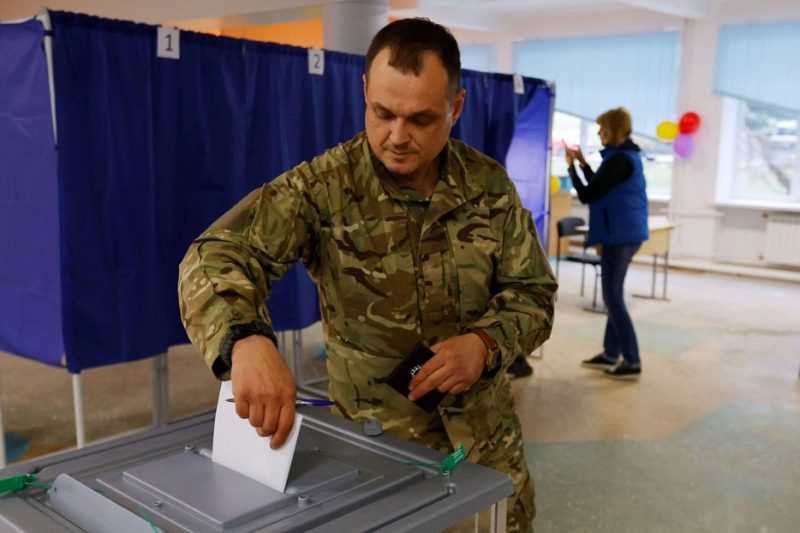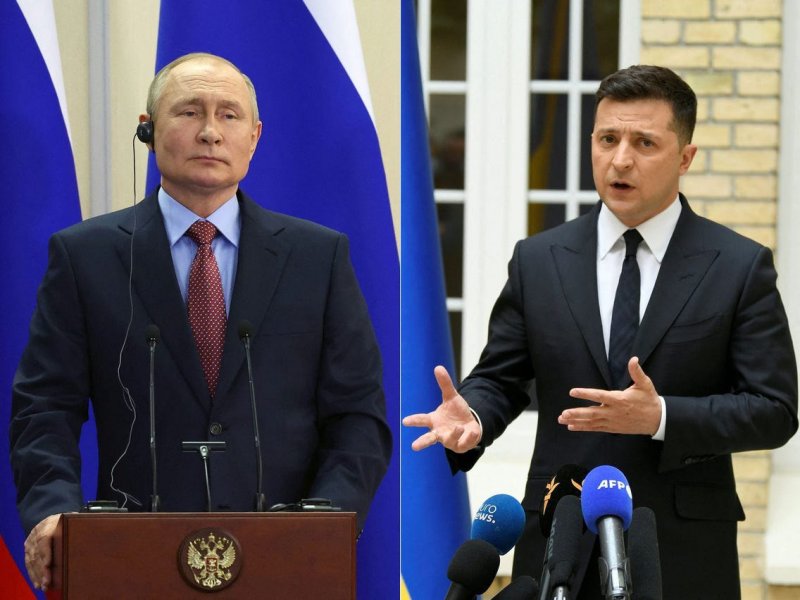Putin chose to escalate tensions
Putin chose to escalate tensions last week when Vladimir Putin called up his reserve forces and announced a referendum on the annexation of Ukrainian territories. The Kremlin leader condemned NATO’s nuclear threat and warned that we are ready to defend ourselves by any means. Vladimir Putin accused the West of wanting to destroy Russia.
Putin spoke of a partial mobilization that includes only reservists and those who have served in the armed forces. According to Defense Minister Sergei Shoigu, about 300,000 people.
The approval of severe penalties by the Duma for those intending to flee fueled fears of widespread conscription. The opposition information website Meduza reported on Telegram that after the president’s speech, all direct flight tickets to Yerevan and Istanbul were sold out. In general, the Kremlin leader announced an escalation of political and military conflicts that started almost seven months ago and continue to this day, with unpredictable consequences.
Referendum
From September 23 to 26, referendums were held in the two separatist republics of Donetsk and Luhansk, in the Zaporizhzhia region, which is home to Europe’s largest nuclear power plant, and in Kherson in the south, which was occupied at the very beginning of Russia’s invasion of Ukraine. In total, these areas roughly constitute about 15% of Ukraine’s territory.
It had been somewhat clear for a long time that the war would enter a potentially dangerous phase, especially the success of Ukraine’s counteroffensive in the northeast, which managed to reclaim over thousands of kilometers of territory occupied by the Russians within a few days. This embarrassed and worried the Kremlin to the extent that after suspending the referendum for annexation, they suddenly changed their mind and quickly planned for the referendum.
A turning point that, according to the Meduza website, can be attributed to the war party consisting of powerful Russian bureaucrats, politicians including former President Dmitry Medvedev, and law enforcement officials, all of whom are staunch supporters of escalating the war with Ukraine.
They are the ones who form the magic circle, a circle that greatly influences Putin’s decisions, including the decision to hold a referendum in the occupied territories. The non-recognition of this referendum by the international community holds little importance for Moscow because Russia does not intend to consolidate victory on the battlefield by annexing these areas.
In fact, it is a means to justify potential extreme actions that may occur in these areas, meaning that if Ukraine makes advances in these territories in the days following the annexation, Putin will be able to reinforce his narrative that the homeland is under attack and must be defended against the Ukrainian Nazis and their Western supporters.
Considering this, Russia’s nuclear threat in his recent speech takes on a more serious tone. He said, if Russia’s territorial integrity is threatened, we will defend it by any means at our disposal, and this is not a bluff.

Putin’s Anschluss
Anschluss refers to the annexation of Austria by Germany under Hitler in 1938. Vladimir Putin finally announced the annexation of Ukrainian territories, saying they belong to us forever. The Russian leader further stated that Ukraine should stop the fire that began in 2014 and return to the negotiating table. He also attacked the West and the United States, saying they want to keep Russians as slaves and impose their rules and lifestyle on them. However, Kyiv’s response was very clear, and shortly after, they formalized their request to join NATO.
Missile attack on civilians
While Putin was delivering his speech, news arrived from the front lines of a Russian missile attack on Zaporizhzhia, the site of Europe’s largest nuclear power plant, targeting a convoy of civilians, resulting in the massacre of a number of civilians. According to Oleksandr Starukh, governor of Zaporizhzhia, at least 25 people, most of them children and the elderly, lost their lives, and 62 others were injured.
According to the United Nations Office for the Coordination of Humanitarian Affairs (OCHA), these were people trying to flee the territory annexed by Russia. Civilians who should have the right to move to escape from attacked areas or simply leave an area due to opposition to a decision are attacked, killed, or injured in a war that many are weary of.
From special operation to defensive war
Europe’s reaction to Putin’s speech was swift. Ursula von der Leyen, President of the European Commission, said the illegal annexation announced by Putin will change nothing. All territories illegally occupied by Russian aggressors are Ukrainian land and will always be part of this independent country. In total, Russia has annexed over 100,000 square kilometers, equivalent to 15% of Ukraine’s total area. But since October 4, when the annexation vote was set up in the upper house, what changes have occurred in the situation?
For Ukrainians, nothing. Ukrainian Foreign Minister Dmytro Kuleba said in a speech: Let’s continue our counteroffensive to liberate our regions. But for the Russians, everything will change. According to Russian military doctrine, Ukraine’s counteroffensive in the annexed areas is now considered an aggression against Russian sovereignty, and Moscow can use any means to defend its territory. In the Kremlin’s logic, the special military operation turns into a defensive war.
All in unison, no
Moscow’s decision to annex the largest part of a sovereign country’s territory in Europe since World War II was met with a unanimous and firm no. Not only Europe and the United States, which called it ridiculous, but also Turkey, India, China, and others who have so far had a dual stance towards Russia’s invasion, announced that they do not recognize either the referendum results or the annexation of part of Ukraine’s territory by Russia.
Beijing, which has repeatedly expressed dissatisfaction with the prolonged conflict in recent weeks, albeit without condemning Moscow, announced: We have always believed that the sovereignty and territorial integrity of all countries should be respected.
An emergency session is being held at the United Nations Security Council to vote on a resolution condemning Russia presented by the United States and Albania. Even if this resolution is not passed due to Russia’s veto, all eyes will be on India and China, who will be asked to comment on the annexations as non-permanent members. In March, Beijing and New Delhi, followed by a large number of emerging countries, abstained from voting on a resolution condemning Russia for its invasion of Ukrainian territory.
Richard Gowan from the International Crisis Group said the vote is a turning point and can help further isolate Russia and Vladimir Putin internationally.
In his recent speech, Putin said nothing entirely different compared to his famous speech at the Munich Security Conference in 2007, especially regarding the claim of neo-colonialism and Western unilateralism. What has changed is only the intensity of the threat, both the threat against Russia from the West and Moscow’s reaction if attacked by the West.
And perhaps it can be claimed that what Russia strongly desires today is its aspiration to lead an anti-Western bloc that Moscow wants to form with India, China, and other emerging countries that were once Western colonies. Ironically, this was done on the same day that the annexation of 15% of a sovereign country’s territory was officially announced. From this perspective, it can be said that Putin’s audience was not only Russians but all the countries that will be invited to vote on the resolution condemning Russia, first at the Security Council and then at the General Assembly.

